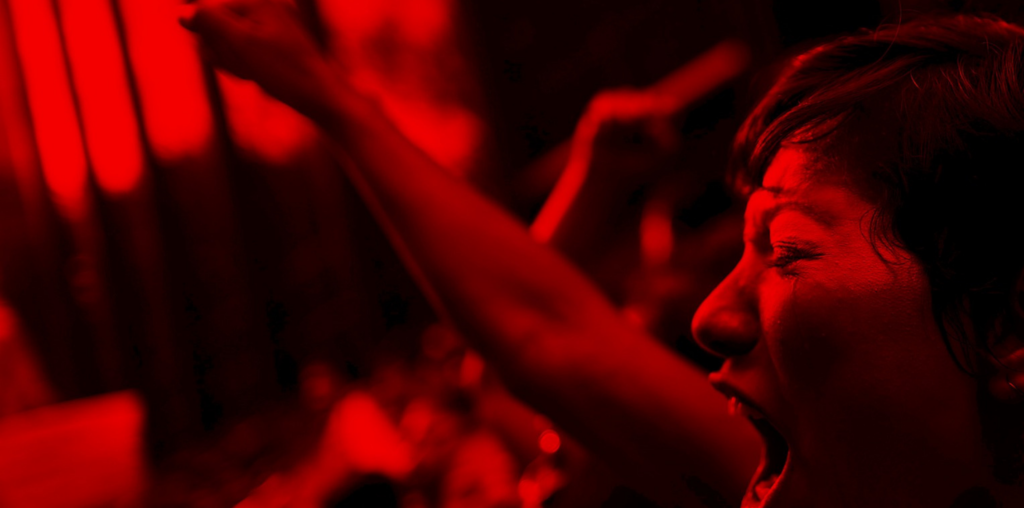The phenomenon of red-tagging has been happening for decades but has intensified in the last few years under the administration of President Rodrigo Duterte, following the breakdown of peace talks between the government and the CPP in 2017. Duterte’s subsequent Executive Order (EO) 70 provides for a “Whole-of-Nation approach in defeating the Local Communist Terrorist Groups” and led to the creation of the NTF-ELCAC. Observers point to this moment in time as the beginning of a renewed campaign of red-tagging, threats and harassment against human rights defenders, political activists, lawyers, trade unionists and other targeted groups perceived to be affiliated with the progressive left.

The UN High Commissioner for Human Rights along with human rights organizations have called for the immediate end to this approach, expressing concern that the government’s dangerously broad counter-insurgency strategy has led to an increase in human rights violations against human rights defenders and political activists across the country.
Under international law and standards, the Philippines has an obligation to ensure the protection of the rights of all, including the rights to life, freedom of expression, and freedom of peaceful assembly, as guaranteed by the International Covenant on Civil and Political Rights (ICCPR) to which the Philippines is a state party. Ensuring that human rights defenders and civil society activists are able to undertake their professional activities free from harassment, threats, and harm is an essential component of the promotion and protection of human rights in the country.
A chilling effect on freedom of expression
Some governments have used the threat of terrorism to target people legally exercising their rights to freedom of expression, association and assembly. These very freedoms come under regular attack by governments that want to stifle criticism.
Defending freedom of expression has always been a core part of Amnesty International’s work and is vital in holding the powerful to account. In parallel with tightening the laws affecting the exercise of the right to freedom of peaceful assembly, there is also the threat of a vastly expanded surveillance powers of law enforcement agencies. These expanded powers can be used against people engaged in organizing and participating in peaceful protests.
Marcos Jr.’s 100 days of stand Still
On President Ferdinand Marcos Jr’s 100th day in office, all areas of priority from Amnesty International’s 8-Point Human Rights Agenda is at a stand still, especially on the issue of justice for the victims of the ‘War on Drugs’ and and the practice of ‘Red-Tagging’.
Amnesty International is extremely concerned for the human rights situation in the country especially following the 51st UN Human Rights Council regular session, where members failed to table a resolution on the Philippines which risks abandoning thousands of victims and survivors who have suffered as a result of the ‘War on Drugs’. We support the High Commissioner’s clear request for OHCHR’s monitoring mandate to be extended to ensure there is no gap in the monitoring and reporting of human rights violations in the country, which also sends a clear message that the OHCHR is keeping watch on the country’s domestic efforts to address human rights violation under President Marcos, Jr.
Innocent until proven guilty?
Some people can be charged with otherwise-lawful activity simply because the authorities believe they will engage in criminal activity in the future. The new Anti-Terror Law criminalizes so-called preparatory acts. In some countries, this includes things like travelling to certain places, or even more remotely, preparing to travel.
Governments around the world have also invested in “pre-crime” initiatives and become increasingly reliant on administrative orders or measures which restrict people’s freedom of movement and other rights. This has led to many people being punished without having committed any crime, undermining the presumption of innocence, a basic principle of criminal law.
In these cases information is usually kept secret, meaning that people subjected to these restrictive measures are not even able to adequately defend themselves. Some countries , like in the Philippines, laws have been passed allowing authorities to detain terrorism suspects for extended periods without charge. In many cases, charges are never laid.
This affects us all
Fear, alienation and prejudice are steadily chipping away at the values of fairness, equality and non-discrimination, the very values on which human rights are founded.
The Philippine government must urgently renew its commitment to upholding international human rights obligations while countering terrorism. The steady regression in so many aspects of rights protection must end.
Unless we act, we risk our rights becoming victims of dangerously disproportionate powers that are supposed to protect us.









